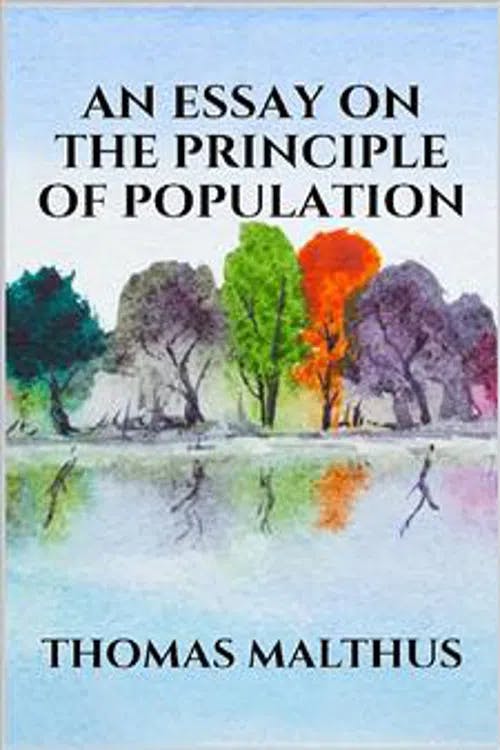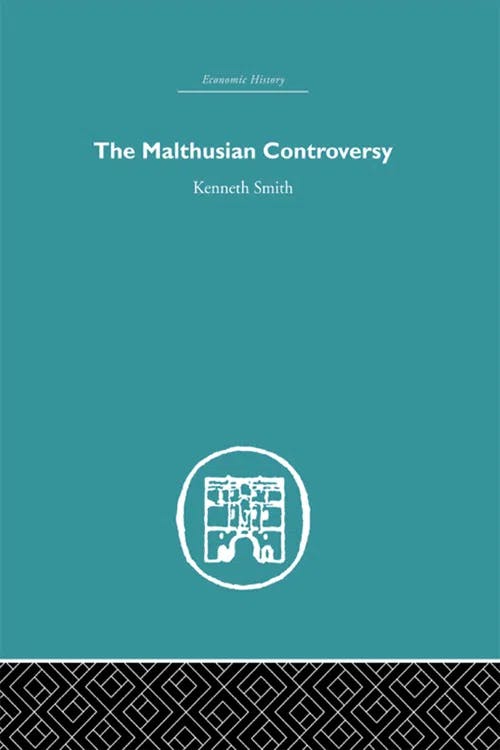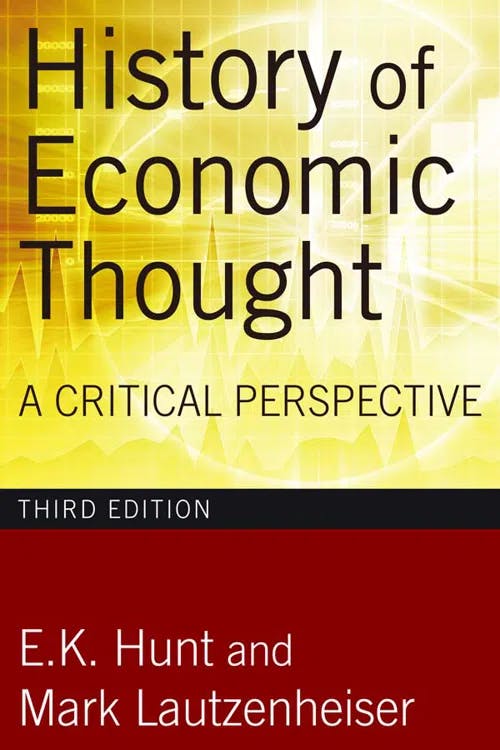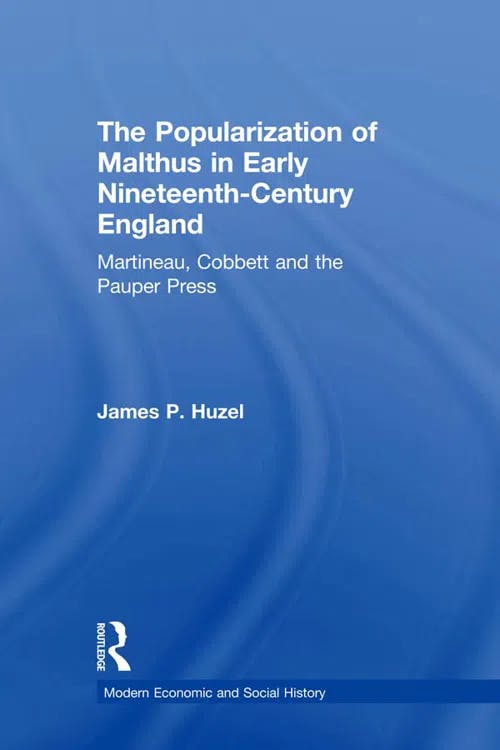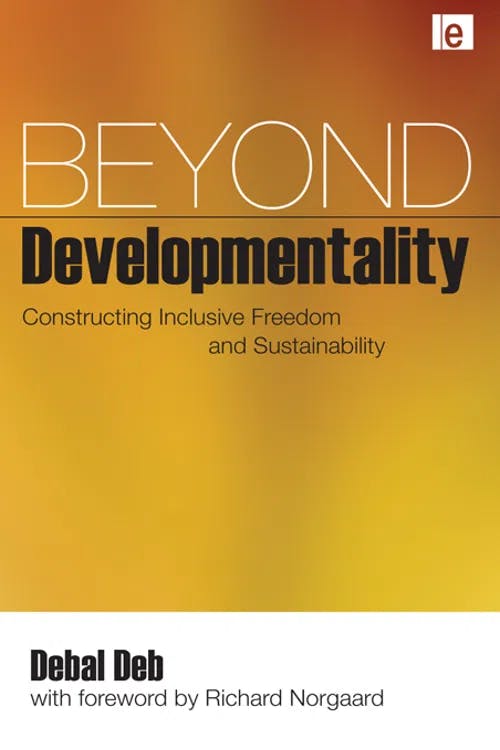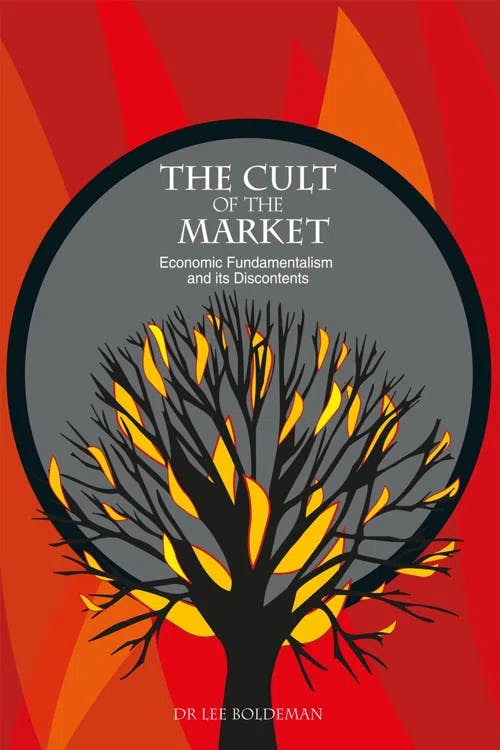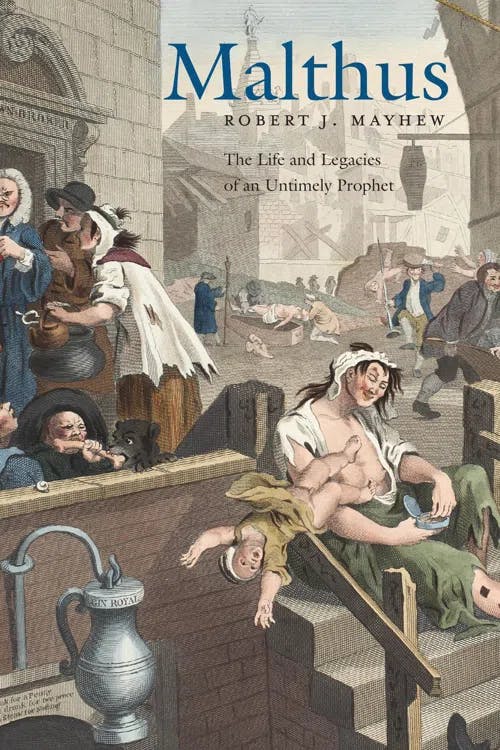What is Malthusian Theory?
PhD, English Literature (Lancaster University)
Date Published: 05.07.2023,
Last Updated: 10.01.2024
Share this article
Defining Malthus' Theory of Population
In Charles Dickens’ A Christmas Carol (1843, [2014]), miser Ebeneezer Scrooge is visited by two charity benefactors asking for a donation for the poor. When Scrooge suggests that the poor should go to the workhouses, the benefactors are aghast, stating that many would rather die than go there. To this, Scrooge replies,
If they would rather die they had better do it and decrease the surplus population. (1843, [2014])
Charles Dickens
If they would rather die they had better do it and decrease the surplus population. (1843, [2014])
Scrooge’s view of poverty, and its solution, is an example of Malthusianism, a branch of economic thinking inspired by Thomas Malthus (1766–1834). Though Malthus was writing almost fifty years prior to the publication of A Christmas Carol, his views on population control proved enormously influential and characterized the attitude to poverty in the Victorian period and beyond.
In 1798, Malthus published his work on population control: An Essay on the Principle of Population. Malthus argues, from studying population increases over time, that population tends to increase in a geometric progression (i.e. multiplying each consecutive term by a constant or common ratio), in this case doubling every twenty-five years. Food production, on the other hand, only increases in an arithmetic progression (i.e. the difference between any consecutive two numbers is constant). Malthus’ concern was that the population would continue to increase beyond what is sustainable; resulting in food shortages, poverty, famine and disease. These consequences are inevitable, according to Malthus, and the government should not interfere in trying to mitigate their impact. Malthus’ ideology has faced much criticism for its laissez-faire attitude towards the poor, and it has been cited as a key influence behind Victorian legislation which was designed to limit poor relief.
Population, food supply, and the Malthusian Trap
Malthus theorized that as humankind progresses, agricultural technology and food production techniques will improve to become more efficient. This progress will mean higher food production, resulting in an increase in population. However, Malthus argues that this increase in population will lead to food shortages as the land (previously used for food production) will be needed for this new population to live on. Any gains made by the improvement of food production technology are quickly mitigated by the fact the expanding population will require resources beyond what is possible. This is known as the Malthusian Trap (or the Malthusian Population Trap). Malthus explains that,
the power of population is indefinitely greater than the power in the earth to produce subsistence for man. (1798, [2018])
Thomas Malthus
the power of population is indefinitely greater than the power in the earth to produce subsistence for man. (1798, [2018])
A Malthusian crisis would be the result of this: a situation whereby the population exceeds the food supply, resulting in famine and disease.
Population checks
There are two main ways, Malthus argues, that the population is controlled: increased mortality rates (referred to as positive checks) and decreased birth rates (known as preventive checks). Malthus further notes that,
[…] the superior power of population cannot be checked without producing misery or vice, the ample portion of these too bitter ingredients in the cup of human life and the continuance of the physical causes that seem to have produced them bear too convincing a testimony. (1798, [2018])
Misery generally comes under the category of “positive checks” as it includes starvation, disease, and death. Vice typically falls under “preventive checks” and includes birth control, abortion, and infanticide.
Positive/natural checks
Positive, or natural checks, refer to the myriad of ways in which human life is cut short: either as a result of natural disasters, or through human intervention. Malthus writes,
The power of population is so superior to the power in the earth to produce subsistence for man, that premature death must in some shape or other visit the human race. The vices of mankind are active and able ministers of depopulation [...] But should they fail in this war of extermination, sickly seasons, epidemics, pestilence, and plague, advance in terrific array, and sweep off their thousands and ten thousands. Should success be still incomplete; gigantic inevitable famine stalks in the rear, and with one mighty blow, levels the population with the food of the world. (1798, [2018])
For Malthus, the world has ways of suppressing population growth. This acts as a type of correction when the population becomes unmanageable for the current food supply.
In the expanded sixth edition of An Essay on the Principle of Population (1826), Malthus goes one step further than simply allowing nature to take its course and recommends further methods to stop the poor from reproducing. Here, he outlines the methods by which he recommends the increasing masses be culled:
Instead of recommending cleanliness to the poor, we should encourage contrary habits. In our towns we should make the streets narrower, crowd more people into the houses, and court the return of the plague. In the country, we should build our villages near stagnant pools, and particularly encourage settlements in all marshy and unwholesome situations. But above all, we should reprobate specific remedies for ravaging diseases; and those benevolent, but much mistaken men, who have thought they were doing a service to mankind by projecting schemes for the total extirpation of particular disorders. If by these and similar means the annual mortality were increased […] we might probably every one of us marry at the age of puberty, and yet few be absolutely starved. (Malthus, 1826)
Malthus felt that by encouraging high mortality rates in the poor, the rest of the population may be spared future famine and shortage. This attitude would go on to inspire Charles Darwin’s theory of evolution, specifically his notion of “survival of the fittest” (On the Origin of the Species, 1869). This, in turn, would mark the beginnings of social Darwinism, an ideology which served to justify colonization, racism, and eugenics. The inequality inherent in social Darwinism still has an immeasurable impact on the world today, all stemming from Malthus’ discussions on population control.
In addition to letting starvation take its course, Malthus theorized a further population check he identified as being practiced among the poor: infanticide. Malthus accused the poor, specifically those in China, of resorting to infanticide during times of food shortages. Malthus argues that China repressed its population through the “barbaric practice” of “exposing children [...] in times of distress”, and adds that this is “probably more frequent than is ever acknowledged to Europeans” (1798, [2018]). However as James Z. Lee and Wang Feng argue in One Quarter of Humanity (2001),
While such behavior varied by class, it was not only common among the poor, but in some societies also practiced by the rich.
James Z. Lee and Wang Feng
While such behavior varied by class, it was not only common among the poor, but in some societies also practiced by the rich.
Infanticide in China, as Lee and Feng suggest, was not solely related to population control and fears of resource scarcity. Instead, as they point out, infanticide was practiced by the wealthy as a way to control the size and composition of the family. For example, girls were typically seen as more burdensome due to the price of dowries and, as such, Qing nobles were almost as likely to kill their daughters as Qing peasants were. Malthus’ assumptions on China (and other countries) can be seen as superficial — as they do not take into account the cultures and customs which may have resulted in the suppression of birth rates.
Preventive Checks
Unlike positive checks which are designed to increase the death rate, preventive checks are methods of reducing the birth rate. Examples of preventive checks include abstinence, and late marriages. For Malthus, the most moral within a society would practice restraint and celibacy. Malthus felt the best of these options was for people to postpone marriage until providing for children becomes a more realistic prospect. If the marriages were later, Malthus reasoned, there would also be fewer children per household. Malthus writes,
Were the marriages in England, for the next eight or ten years, to be more prolifick than usual, or even were a greater number of marriages than usual to take place, supposing the number of houses to remain the same, instead of five or six to a cottage, there must be seven or eight, and this, added to the necessity of harder living, would probably have a very unfavourable effect on the health of the common people. (1798, [2018])
However, as Kenneth Smith explains in The Malthusian Controversy (2013), this solution is unrealistic. Smith also argues that the concept of calculating when it is “reasonable” to reproduce is “absurd” (2013). He writes,
One can imagine two labourers aged twenty mentally calculating their averages and deciding that they ought to defer marriage till thirty. The one takes a chance and as it turns out has only one child ; the other prudently waits, and then runs into trouble by producing a child per annum. Such instances as these would immediately discredit prudential restraint in the eyes of the labourers. (Smith, 2013)
Kenneth Smith
One can imagine two labourers aged twenty mentally calculating their averages and deciding that they ought to defer marriage till thirty. The one takes a chance and as it turns out has only one child ; the other prudently waits, and then runs into trouble by producing a child per annum. Such instances as these would immediately discredit prudential restraint in the eyes of the labourers. (Smith, 2013)
Other types of preventive measures, for Malthus, include birth control and abortion. As an Anglican cleric, Malthus condemned these methods. Birth control and abortion, Malthus argued, were largely practiced by the poor — who he saw as having limited impulse control. As E. K. Hunt and Mark Lautzenheiser write,
[...] in Malthus’s theory, the ultimate difference between the rich and the poor was the high moral character of the former and the moral turpitude of the latter. He considered birth control to be a vice that a good Christian would hardly mention, much less advocate. Furthermore, he associated it exclusively with premarital or extramarital sexual intercourse. (2015)
E. K. Hunt and Mark Lautzenheiser
[...] in Malthus’s theory, the ultimate difference between the rich and the poor was the high moral character of the former and the moral turpitude of the latter. He considered birth control to be a vice that a good Christian would hardly mention, much less advocate. Furthermore, he associated it exclusively with premarital or extramarital sexual intercourse. (2015)
Ironically, the Malthusian League (established in 1877) would campaign for the widespread availability of (and education on) birth control as a way to control the population. (For more information on birth control in the Victorian period and the Malthusian League, see Angus McLaren’s Birth Control in Nineteenth-Century England, 2022.)
Malthus’ influence on the Victorians
As indicated by Dickens’ reference to Malthusian economics in the introduction to this guide, Malthus’ work made a significant impact on the way that nineteenth-century economists, writers, and politicians viewed poverty and the population problem.
Malthus is often cited in opposition to the Poor Law of 1601, which was legislation designed to provide aid to the most destitute in England. Malthus vehemently opposed providing aid to the poor, as he felt it discouraged them from planning for the future, working for a living, and saving to provide for their families during times of hardship. He writes that such laws
diminish both the power and the will to save among the common people, and thus to weaken one of the strongest incentives to sobriety and industry [...] (1798, [2018])
Debates over whether the government’s relief for the poor was too paternalistic eventually culminated in the passing of the New Poor Law (1834). This new law imposed even more draconian measures on the poor, mandating that they could only seek relief if they were willing to go to the workhouse. To read more about the New Poor Law and Victorian workhouses, please see David Englander’s Poverty and Poor Law Reform in Nineteenth-Century Britain, 1834–1914 (2013).
As James. P. Huzel explains in The Popularization of Malthus in Early Nineteenth-Century England,
Although Malthus did not directly intervene in the debate over the New Poor Law and was not involved in its passage, his influence — though indirect and only one among a myriad of factors — was nevertheless highly significant [...] Only by emphasizing the impact of Malthusian ideas can one fully explain why the ruling elite abnegated its paternal role towards the less fortunate in society. (2017)
James P. Huzel
Although Malthus did not directly intervene in the debate over the New Poor Law and was not involved in its passage, his influence — though indirect and only one among a myriad of factors — was nevertheless highly significant [...] Only by emphasizing the impact of Malthusian ideas can one fully explain why the ruling elite abnegated its paternal role towards the less fortunate in society. (2017)
Politicians, therefore, were at liberty to cite Malthus as a justification for not providing aid to those in poverty or suffering from food shortages, both at home and abroad. As Debal Deb writes,
[...] if unchecked population growth leads to poverty, which in turn is necessary for national prosperity, why arrest that? If poverty is a necessary stimulus of economic growth, why disallow the poor to multiply? In reality, Malthusianism’s inconsistency provides a convenient escape route for the state to relinquish responsibility and accountability, while maintaining a façade of bourgeois democracy in protecting industrial and commercial interests in development. (2012)
Debal Deb
[...] if unchecked population growth leads to poverty, which in turn is necessary for national prosperity, why arrest that? If poverty is a necessary stimulus of economic growth, why disallow the poor to multiply? In reality, Malthusianism’s inconsistency provides a convenient escape route for the state to relinquish responsibility and accountability, while maintaining a façade of bourgeois democracy in protecting industrial and commercial interests in development. (2012)
A particularly stringent example of this is England’s response to the Irish Potato Famine (1845–52). While resentment towards the Irish played a huge role in England’s lack of assistance during this horrific period of mass starvation, Malthusianism also contributed to this no-interference policy. Many English people saw famine as an inevitable outcome of overpopulation. Charles Trevelyan, who was influential in the British Treasury at the time, saw the Irish Famine in Malthusian terms:
The judgment of God sent the calamity to teach the Irish a lesson [and] that calamity must not be too much mitigated.
(Charles Trevelyan, quoted by Lee Boldeman in The Cult of the Market, 2007)
Lee Boldeman
The judgment of God sent the calamity to teach the Irish a lesson [and] that calamity must not be too much mitigated.
(Charles Trevelyan, quoted by Lee Boldeman in The Cult of the Market, 2007)
Although the Irish Potato Famine was after Malthus’ time, Malthus was
strongly against mercantilist trade policies and any government interference with Irish wages or rents. Ireland had no Poor Law and, as expected, Malthus later vehemently opposed the introduction of such laws into the country. (Huzel, 2017)
A further example of Malthus’ negative influence is in Britain’s dealings with India. As Deb explains,
[...] the British government, obeying Malthusian doctrine, refused to send relief to the Deccan villages and let 5.5 million Indian peasants die during the famine of 1877–78, but violated the doctrine by exporting millions of tons of wheat from India to England to ensure food availability to the English population. (2012)
Malthus’ suggestions for population control, while gaining some traction with proponents of liberalism, were less popular with radical commentators such as William Cobbett. In the weekly newspaper Political Register, Cobbett satirized Malthus’ ideas, criticizing him for his dehumanizing portrayal of the working classes as lacking self control and overpopulating at an unsustainable rate. On 19th May 1821, Cobbett wrote that,
[Malthusian ideology] to be of any effect must go further, and make England as famed for singers as Italy. He [Malthus] must, at once, declare the labourers to be live-stock, and authorize those operations upon them, of which male and female pigs are compelled to submit; and, in that case, I think, PARSON MALTHUS might with propriety be made operator general. (Cobbett, quoted in Huzel, 2017)
However, Huzel points out that Cobbett missed the point that Malthus was trying to make:
At numerous points, not unlike many other contemporary critics, [Cobbett] misread or deliberately misinterpreted Malthus. He failed to acknowledge, for example, the concept of prudential restraint — delay of marriage with occasional lapses in abstinence — that Malthus thought was a more realistic prescription in a less than perfect world. (2017)
Other advocates for the English working class argued that Malthus’ work blamed the poor for their misfortunes rather than systemic inequality. Malthus’ most influential detractors were arguably Friedrich Engels and Karl Marx (German political theorists who wrote The Communist Manifesto, 1848). While Marx and Engels argue that the plight of the poor is caused by unequal distribution of capital, Malthus implies that destitution among the working classes is due to irresponsible reproduction.
In his essay “Outlines of a Critique of Political Economy” (1844), Engels states:
The implications of [Malthus’] line of thought are that since it is precisely the poor who are the surplus, nothing should be done for them except to make their dying of starvation as easy as possible, and to convince them that it cannot be helped and that there is no other salvation for their whole class than keeping propagation down to the absolute minimum. Or if this proves impossible, then it is after all better to establish a state institution for the painless killing of the children of the poor […] whereby each working-class family would be allowed to have two and a half children, any excess being painlessly killed. Charity is to be considered a crime, since it supports the augmentation of the surplus population.
It is little wonder that Marxists such as Engels would take issue with Malthus’ representation of the poor as being a drain on the nation’s resources. Marxism argues that the working classes actually create the economy’s value through their labor, and sustain their capitalist employers. If capital was shared fairly, Marxism argues, then the working classes would receive a far greater share for their labor, and there would also be more to use as a social safety net for the very poorest in society. Malthus’ work had led to a laissez-faire approach to the poor and to economics more broadly, making the Marxian goal of a socialist society seem even more unattainable.
In Steady-State Economics (2012), Herman E. Daly explains that Malthus “took capitalism as given and urged individual prudence, restraint, and responsibility in marriage and reproduction as the way to combat poverty”. As the poor, according to Malthus, were unable to exercise moral restraint, they were destined to live on a meager level of subsistence and face possible starvation. While Marx believed that distributing wealth was the way out of inequality, Malthus felt this was not a long-term solution. As Hunt and Lautzenheiser explain, Malthus’ view was that
If all income and wealth were distributed among them [the poor], it would be totally dissipated within one generation because of profligate behavior and population growth, and they would be as poor and destitute as ever. (2015)
For more information on Marxism, see our study guide.
Malthus today
Malthus’ views were highly influential in informing policy and politics in the nineteenth century and onwards. In the mid-twentieth century, his work still continued to resonate with some who felt that the population increase had reached uncontrollable levels. Following on from Malthus’ teachings, neo-Malthusianism emerged as a result of the rapidly increasing world population in the 1940s, spearheaded by books such as William Vogt’s Road to Survival (1948). Neo-Malthusians, like Malthus, believe the world population is too high and will result in a serious crisis, such as a famine. Unlike Malthus, however, they largely advocate for the use of birth control. Later, texts such as The Population Bomb (1968) by Paul R. Ehrlich espoused new concerns about a population explosion, caused by the baby boom, and the possibility of famine.
However, we are still yet to see predictions of a Malthusian apocalypse come to fruition, and research indicates this possibility remains unlikely. But why is this? While the world population has grown, this has not been at the exponential rate Malthus predicted. Nor has the increase in population resulted in global food shortages.
Though poverty still exists across the world, this has less to do with increased populations and more to do with unequal wealth distribution and limitations on agriculture in different countries. Malthus also did not account for advancements in agricultural technology and the emergence of global trade. Due to globalization, countries can trade goods and services for food, instead of relying solely on their own limited land. Today, many countries (particularly in the West) actually have a surplus of food, a great deal of which ends up in landfill.
As Robert J. Mayhew puts into perspective,
[...] there is currently enough food produced in the world to feed around 10 billion people [...] the problem is one of resource distribution, not a Malthusian one of absolute resource shortage. (2014)
Robert J. Mayhew
[...] there is currently enough food produced in the world to feed around 10 billion people [...] the problem is one of resource distribution, not a Malthusian one of absolute resource shortage. (2014)
Unfounded fears of food shortages may even contribute to this unequal distribution. Mayhew goes on to explain that,
Malthusian fears about food security […] are driving an unprecedented global “land grab” that internationalizes the ownership of agricultural resources in ways not seen since decolonization. (2014)
Though Malthus’ predictions regarding the detrimental impact of population growth have been disproven, the impact of his work can still be felt today. There are still debates on how much input the government should have with the poorest in society (very little according to neo-liberalists). Some scholars, however, have sought to overturn Malthusian myths about poverty and demonstrate how poverty cannot be attributed solely to poor life decisions (Mary O’Hara, The Shame Game, 2020). Looking beyond the West, Alex de Waal’s Mass Starvation (2017) looks at the resurgence of famine and refutes the Malthusian notion that famine is caused by overpopulation. These new avenues of research are crucial in shedding light on the root causes of poverty, refusing to dismiss starvation and substandard living as inevitable.
Despite Malthus’ controversial viewpoints and ultimately erroneous predictions of overpopulation, his contribution to Victorian intellectual life, and perceptions of poverty, cannot be understated.
Further reading on Perlego
Beyond Malthus (2014) by Lester R. Brown, Gary Gardner, and Brian Halweil
From Malthus to Mars (2023) by Nicolai Chen Nielsen and Lars Tvede
Population Malthus (2018) by Patricia James
Utilitarianism and Malthus' Virtue Ethics (2014) by Sergio Cremaschi
What is Malthus’ theory of population in simple terms?
What are Malthus’ population checks?
What is neo-Malthusianism?
Bibliography
Bellamy Foster, J. (2002) Ecology Against Capitalism. Monthly Review Press. Available at: https://www.perlego.com/book/719802/ecology-against-capitalism-pdf
Boldeman, L. (2007) The Cult of the Market: Economic Fundamentalism and its Discontents. ANU Press. Available at: https://www.perlego.com/book/2804799/the-cult-of-the-market-economic-fundamentalism-and-its-discontents-pdf
Chen Nielsen, N. & Tvede, L. (2023) From Malthus to Mars: How to Live, Lead, and Learn in an Exponential World. Fast Company Press. Available at: https://www.perlego.com/book/3856635/from-malthus-to-mars-how-to-live-lead-and-learn-in-an-exponential-world-pdf
Daly, H. E.(2012) Steady-State Economics: Second Edition With New Essays. Island Press. Available at: https://www.perlego.com/book/2984985/steadystate-economics-second-edition-with-new-essays-pdf
Darwin, C. (2018) On the Origin of the Species, or; The Preservation of the Favoured Races in the Struggle for Life. Read & Co. Science. Available at: https://www.perlego.com/book/792517/on-the-origin-of-species-or-the-preservation-of-the-favoured-races-in-the-struggle-for-life-pdf
de Waal, A. (2017) Mass Starvation: The History and Future of Famine. Polity. Available at: https://www.perlego.com/book/1536584/mass-starvation-the-history-and-future-of-famine-pdf
Deb, D. (2012) Beyond Developmentality: Constructing Inclusive Freedom and Sustainability. Routledge. Available at: https://www.perlego.com/book/1547794/beyond-developmentality-constructing-inclusive-freedom-and-sustainability-pdf
Dickens, C. (2014) A Christmas Carol. Simon & Schuster. Available at: https://www.perlego.com/book/778331/a-christmas-carol-pdf
Ehrlich, P. R. (1995) The Population Bomb. Buccaneer Books. Digitized by Internet Archive. Available at: https://archive.org/details/populationbomb0000unse_z0n3/page/n5/mode/2up
Engels, F. (1844) “Outlines of a Critique of Political Economy”. Deutsch-Französische Jahrbücher. Available at: https://www.marxists.org/archive/marx/works/1844/df-jahrbucher/outlines.htm
Englander, D. (2013) Poverty and Poor Law Reform in Nineteenth-Century Britain, 1834-1914: From Chadwick to Booth. Routledge. Available at: https://www.perlego.com/book/1557096/poverty-and-poor-law-reform-in-nineteenthcentury-britain-18341914-from-chadwick-to-booth-pdf
Hunt, E. K. & Lautzenheiser, M. (2015) History of Economic Thought. Routledge. Available at: https://www.perlego.com/book/1561212/history-of-economic-thought-a-critical-perspective-pdf
Huzel, J. P. (2017) The Popularization of Malthus in Early Nineteenth-Century England: Martineau, Cobbett and the Pauper Press. Routledge. Available at: https://www.perlego.com/book/1487285/the-popularization-of-malthus-in-early-nineteenthcentury-england-martineau-cobbett-and-the-pauper-press-pdf
Lee, J. Z & Feng, W. (2001) One Quarter of Humanity: Malthusian Mythology and Chinese Realities, 1700–2000. Harvard University Press. Available at: https://www.perlego.com/book/1147910/one-quarter-of-humanity-malthusian-mythology-and-chinese-realities-17002000-pdf
MacLaren, A. (2022) Birth Control in Nineteenth-Century England. Routledge. Available at: https://www.perlego.com/book/3592902/birth-control-in-nineteenthcentury-england-pdf
Malthus, T. R. (2018) An Essay on the Principle of Population. Youcanprint. Available at: https://www.perlego.com/book/3004557/an-essay-on-the-principle-of-population-pdf
Marx, K & Engels, F. (2014) The Communist Manifesto. Harper Torch. Available at: https://www.perlego.com/book/602671/the-communist-manifesto-pdf
Mayhew, R. J. (2014) Malthus: The Life and Legacies of an Untimely Prophet. Belknap Press. Available at: https://www.perlego.com/book/1147978/malthus-pdf
O’Hara, M. (2020) The Shame Game: Overturning the Toxic Poverty Narrative. Policy Press. Available at: https://www.perlego.com/book/2058849/the-shame-game-overturning-the-toxic-poverty-narrative-pdf
Smith, K. (2013) The Malthusian Controversy. Routledge. Available at: https://www.perlego.com/book/1679970/the-malthusian-controversy-pdf
Vogt, W. (2020) Road to Survival. Barakaldo Books. Available at: https://www.perlego.com/book/3019150/road-to-survival-pdf
PhD, English Literature (Lancaster University)
Sophie Raine has a PhD from Lancaster University. Her work focuses on penny dreadfuls and urban spaces. Her previous publications have been featured in VPFA (2019; 2022) and the Palgrave Handbook for Steam Age Gothic (2021) and her co-edited collection Penny Dreadfuls and the Gothic was released in 2023 with University of Wales Press.


